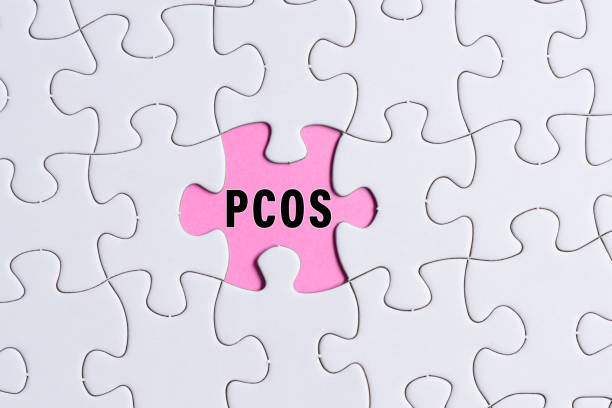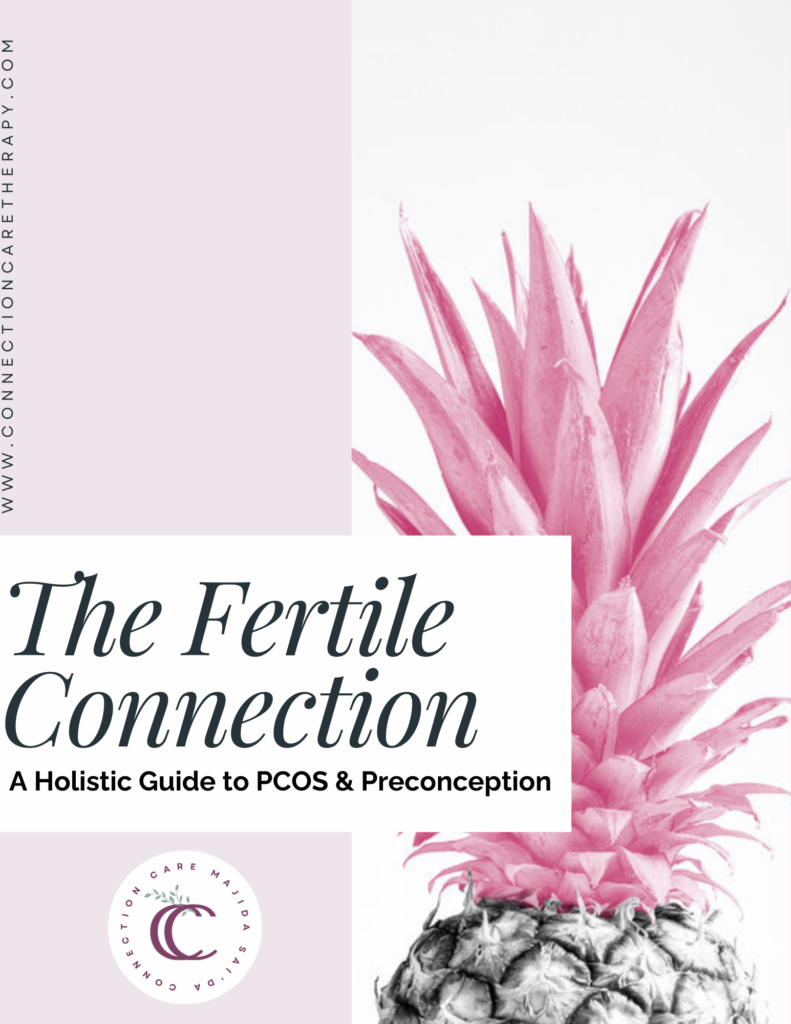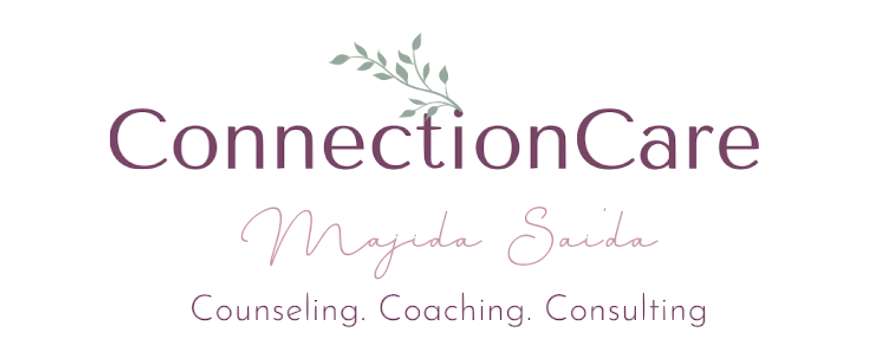Polycystic Ovary Syndrome (PCOS) is a hormonal disorder affecting up to 13% of women of childbearing age, with 70% of affected women often going undiagnosed. This condition arises from an imbalance of hormones and can lead to a variety of symptoms and health issues, including irregular periods, weight gain, acne, excess hair growth, and infertility.
A woman’s fertility can be significantly impacted by PCOS, which can affect her hormone health. The link between PCOS, hormone health, and fertility is complex and multifaceted, and it’s essential to understand the interplay between these factors for those on a trying to conceive journey. Hormones have a significant influence on the regulation of the menstrual cycle and ovulation, which can result in fertility issues if they are disrupted.
In this blog, we will delve into the origins and consequences of PCOS on hormone health and fertility. We will also consider the different approaches available to control this condition. Whether you have been recently diagnosed with PCOS or are simply interested in learning more about the condition, this blog will provide you with the information you need to understand PCOS better and how it affects hormone health and fertility.
Symptoms of PCOS
- Irregular periods are a frequently observed symptom of PCOS: Those suffering from PCOS may encounter periods that are sporadic, intense, or completely non-existent. This is because hormonal imbalances associated with PCOS can interfere with ovulation and the regular shedding of the uterine lining.
- Another symptom of PCOS is excess hair growth, also known as hirsutism. Women with PCOS may notice hair growth in unusual places, such as their face, chest, or back. Excess hair growth can occur due to the increased production of male hormones androgens. Androgens are responsible for causing this condition.
- Acne is another common symptom of PCOS, particularly in adult women. PCOS can result in hormonal imbalances that trigger the overproduction of sebum, a natural oil that can block pores and contribute to acne outbreaks.
- It’s common for women with PCOS to experience weight gain as a symptom. Specifically, weight gain may be a struggle, mainly in the abdominal region. This is because insulin resistance, which is common in women with PCOS, can lead to weight gain and difficulty losing weight.
- Finally, infertility is a significant concern for women with PCOS. Women with PCOS may experience anovulation, which means that they do not ovulate regularly, making it more difficult to conceive. Women who are attempting to get pregnant can find it to be a cause of irritation and worry.
If you are experiencing any of the following symptoms, it is vital to consult with your healthcare provider, as it could be an indication of PCOS. In the next section, we will explore the causes of PCOS and how it affects hormone health and fertility.
Top 10 most common signs of PCOS
- Irregular periods
- Hair growing excessively on the face, chest, or back.
- Acne breakouts
- Weight gain, especially in the abdominal area
- Infertility or difficulty getting pregnant
- Thin hair or hair loss on the scalp
- Skin discoloration in areas such as the neck, groin, or underarms.
- Skin discoloration on the neck, groin, or underarms in the form of dark patches.
- Fatigue or lack of energy
- Mood swings or depression
- Sleep apnea or breathing problems during sleep
It’s important to note that not every woman with PCOS will experience all of these symptoms, and some may experience only a few. If you suspect that you may have PCOS, it’s essential to talk to your healthcare provider for a proper diagnosis and treatment plan.
Understanding the underlying causes of PCOS is crucial if you are experiencing symptoms. It is essential to comprehend the root causes of PCOS if you are encountering symptoms related to it. Different factors may cause PCOS, such as hormonal imbalances, genetics, and insulin resistance. To effectively manage the symptoms of PCOS, it is essential to identify the root cause. Let’s explore the factors that contribute to the development of PCOS in more detail.
Causes of PCOS

The development of PCOS is not entirely clear. However, there are a number of factors that could potentially contribute to its onset. Majorly contributing to the issue is insulin resistance. Insulin, a hormone created in the pancreas, supports using glucose as an energy source. In women with PCOS, insulin resistance can occur, which means the body’s cells become less responsive to insulin. Elevating insulin levels can lead to an overproduction of androgens (male hormones) by the ovaries. This can happen due to the stimulation caused by the increased insulin levels. These hormonal imbalances can lead to the development of PCOS.
Genetics may also play a role in the development of PCOS. Women with a family history of PCOS are more likely to develop the condition themselves. However, the exact genes that contribute to PCOS are still being studied.
Hormonal imbalances often cause PCOS. Women with this condition usually have more androgens in their bodies than women without it. These hormonal imbalances can disrupt ovulation and lead to additional symptoms of PCOS, such as excess hair growth and acne.
PCOS may be caused by factors other than genetic predisposition, such as inflammation, environmental factors, and lifestyle choices like an unhealthy diet or a lack of physical activity. These factors can contribute to the development of PCOS alongside genetic predisposition.
Understanding the underlying causes of PCOS is essential for developing effective treatment plans. In the next section, we will explore the various treatment options available for managing PCOS and improving hormone health and fertility.
Some Types of PCOS and Their Symptoms
| Type of PCOS |
Cause |
Primary Symptoms |
| Insulin-Resistant PCOS |
Insulin Resistance |
Irregular periods, weight gain, acne, excess hair growth (hirsutism), infertility. Insulin resistance can lead to dark patches on the skin (acanthosis nigricans), primarily in body folds and creases. |
| Inflammatory PCOS |
Chronic Inflammation |
Irregular periods, acne, hair loss or thinning (alopecia), hirsutism, difficulty losing weight. Additional symptoms might include fatigue, headaches, and joint pain, indicating systemic inflammation. |
| Adrenal PCOS |
Overproduction of Androgens by Adrenals |
Irregular periods, acne, oily skin, hair loss or thinning, hirsutism. Might also include symptoms such as fatigue and low blood pressure. Significant weight changes are less commonly directly associated with this type unless related to other adrenal issues like adrenal fatigue. |
| Post-Pill PCOS |
Hormonal Disruption after Stopping Birth Control Pills |
Irregular periods, acne, hair loss or thinning, hirsutism. Often resolves over time as the body naturally reestablishes its hormonal balance. Crucial to differentiate from traditional PCOS as it may not present with the same long-term metabolic risks. |
It’s important to note that these categories are not definitive and that PCOS can manifest differently in different individuals. Some women may experience symptoms that fall into multiple categories, while others may not fit neatly into any of these categories. If you suspect that you have PCOS, it is essential to seek guidance from your provider or fertility specialist to obtain an accurate diagnosis and an appropriate treatment strategy.
Understanding the causes of PCOS can shed light on how the condition affects hormone health. Hormonal imbalances caused by PCOS can lead to an increase in androgen levels, a decrease in estrogen levels, and an imbalance in LH/FSH ratios. These hormonal changes can contribute to a range of symptoms and health issues. In the following section, we’ll delve into the effects of PCOS on hormone health.
Effects of PCOS on Hormone Health
PCOS can have a significant impact on hormone health. Women who have PCOS usually experience elevated levels of male hormones, known as androgens, unlike women without the condition. Due to this, they may show signs like acne, irregular periods, and excessive hair growth. Additionally, women with PCOS may have reduced levels of estrogen, which can contribute to menstrual irregularities and other symptoms.
In women with PCOS, the ratio of luteinizing hormone (LH) to follicle-stimulating hormone (FSH) can also be imbalanced. Typically, LH and FSH work together to regulate the menstrual cycle and promote ovulation. However, in women with PCOS, LH levels may be higher than FSH levels, which can prevent ovulation from occurring.
Hormonal imbalances have the potential to affect fertility in a significant way. Due to factors like irregular periods, lack of ovulation, and others, women with PCOS may face difficulties in getting pregnant. The likelihood of experiencing other health problems, such as type 2 diabetes, hypertension, and heart disease, as well as fertility issues, can be increased by having PCOS.
Managing PCOS often involves addressing these hormonal imbalances through lifestyle changes, medication, and other interventions. In the next section, we will explore the various treatment options available for managing PCOS and improving hormone health and fertility.
PCOS’s effects on hormone health can have a significant impact on fertility. Women with PCOS may experience anovulation, reduced fertility, and an increased risk of miscarriage due to hormonal imbalances. In the following section, we’ll explore the effects of PCOS on fertility in more detail.
Effects of PCOS on Fertility
PCOS has the potential to affect fertility adversely, and research suggests that nearly 70% of women with PCOS may have difficulty getting pregnant. One of the primary ways that PCOS affects fertility is through anovulation, or the lack of ovulation. Without ovulation, it can be difficult or impossible to conceive.
In addition to anovulation, PCOS can also lead to reduced fertility in other ways. Hormonal imbalances can cause alterations in cervical mucus, which may impede the ability of sperm to reach and fertilize an egg. The risk of developing conditions that can further complicate fertility, such as endometrial hyperplasia, can also increase due to PCOS.
Finally, women with PCOS have an increased risk of miscarriage. It is believed that this can be linked to hormonal imbalances and other factors that may pose challenges in properly implanting and developing a fertilized egg.
Despite these challenges, there is hope for women with PCOS who want to conceive. There are many different options for treatment available for those who are dealing with infertility and PCOS, including lifestyle changes, fertility medications, and assisted reproductive technologies such as IVF.
Collaborating with a qualified provider who has expertise in treating both PCOS and infertility is crucial to ensure that you receive excellent care. Top-notch care is essential and achievable with the help of an experienced provider. Your provider should assist you in creating a personalized treatment plan customized to your individual needs and objectives, guaranteeing you get the best possible results.
If you suspect that you may have PCOS due to fertility issues, it is essential to seek medical attention for a proper diagnosis and functional support to aid you in finding the root cause of your hormone health concern. The following section will discuss the diagnostic criteria and tests for PCOS.
Diagnosis of PCOS
To diagnose PCOS, healthcare providers typically use a combination of diagnostic criteria and tests and assessments. The criteria used to diagnose PCOS may differ among healthcare providers and organizations but usually the Rotterdam criteria require two of the three main characteristics:
- Irregular Ovulation: Infrequent, irregular, or prolonged menstrual periods, which indicate inconsistent ovulation or anovulation.
- Hyperandrogenism: Elevated levels of androgens (male hormones) which may manifest physically as hirsutism (excessive hair growth on the face or body), severe acne, or scalp hair thinning.
- Polycystic Ovaries: The presence of numerous small cysts on the ovaries as seen in an ultrasound.
Conventional medicine typically relies on a range of tests and assessments to diagnose PCOS. Measuring hormone levels like testosterone and luteinizing hormone (LH) in the blood and carrying out imaging tests to evaluate the ovaries for any cysts or other abnormalities might be part of the diagnostic process. When diagnosing a medical condition, healthcare providers may inquire about symptoms like acne, excessive hair growth, and weight gain to gather information.
Functional medicine experts may utilize various evaluations and examinations to diagnose PCOS. These may include hormone testing, such as measuring levels of estrogen and progesterone, as well as assessments of metabolic health, such as blood sugar levels and insulin resistance. Functional medicine practitioners may also evaluate other factors impacting PCOS, such as gut health, stress, and environmental toxins.
Regardless of the approach used to diagnose PCOS, it’s important to work with a qualified provider who is experienced in treating the condition. Accurate diagnosis is crucial for developing an efficient treatment plan and effectively managing symptoms. In the next section, we’ll explore some of the different treatment options available for managing PCOS and improving hormone health and fertility.
Once you have been diagnosed with PCOS, it’s time to explore the treatment options available. In the next section, we will discuss conventional and functional medicine approaches for managing PCOS symptoms.
Treatment of PCOS
There are a variety of treatment options available for PCOS, ranging from conventional approaches to functional medicine and nutrition-based approaches. Your specific requirements and objectives will determine the most suitable treatment approach for you, which may require various techniques.
Conventional approaches to treating PCOS may include medications such as metformin, birth control pills, or fertility drugs to help regulate hormones and improve symptoms. In some cases, surgery such as ovarian drilling may be recommended to help improve fertility. Skilled providers may also recommend lifestyle changes such as exercise, diet modifications, and stress management techniques to help improve symptoms and overall health.
Functional medicine and nutrition-based approaches to treating PCOS may focus on addressing underlying imbalances in hormones, metabolism, and gut health through diet and lifestyle changes. Collaborating with a qualified professional or a certified nutritional therapist might be necessary to design a customized nutrition program that prioritizes whole, nutrient-rich foods while steering clear of processed and inflammatory foods. Supplements such as inositol and omega-3 fatty acids may also be recommended to support hormone balance.
In order to enhance your overall wellbeing and cope with symptoms, it might be suggested to adopt a healthier lifestyle by integrating frequent physical activity into your everyday schedule and implementing stress-reducing strategies, such as yoga, meditation, or mindfulness exercises.
The most appropriate treatment for PCOS depends on various factors, such as your symptoms, objectives, and general health condition. Working with a proficient provider is essential to devising a customized treatment plan that caters to your individual needs and aspirations.
By taking steps to manage PCOS, you can increase your chances of conceiving and having a healthy pregnancy. In addition to medical interventions, working with a fertility awareness educator can provide valuable insights and tools to support your fertility.
PCOS & Fertility Awareness

Fertility awareness is a practice that involves tracking your menstrual cycle and identifying your fertile window to optimize your chances of conceiving, to avoid pregnancy using your body’s natural biomarkers, and/or to support your in gaining health agency through understanding your hormone signals. Couples who want to have a baby often use fertility awareness, but it can also be beneficial for women with PCOS who want to better understand their menstrual cycles and enhance their fertility.
By tracking their menstrual cycles, women with PCOS can gain valuable insight into the timing and frequency of their ovulation, as well as any irregularities or changes in their cycle. This information can be used to optimize conception timing or to identify potential underlying hormonal imbalances that may be impacting fertility.
Working with a fertility awareness educator or qualified provider who is experienced in working with women with PCOS can be particularly helpful. They can provide guidance and support in tracking menstrual cycles and identifying potential underlying imbalances, as well as provide recommendations for lifestyle changes or supplements that may help optimize fertility.
Overall, fertility awareness can be a powerful tool for women with PCOS who are looking to understand their menstrual cycles better and optimize their fertility. By working with a knowledgeable provider or fertility awareness educator, women with PCOS can gain valuable insight into their bodies and take proactive steps to optimize their fertility and overall health.
Top 10 benefits of working with a Fertility Awareness Educator (FAE) for PCOS
- It would benefit you to acquire an in-depth comprehension of your menstrual cycle and its impact on your fertility.
- Learn how to track your menstrual cycle using Fertility Awareness-Based Methods (FABMs).
- Identify potential hormonal imbalances that may be contributing to PCOS symptoms.
- Discover natural ways to improve hormone balance and optimize fertility.
- Discover how to recognize your most fertile days and enhance the likelihood of getting pregnant.
- Develop a deeper connection with your body and menstrual cycle.
- Get individualized assistance and direction throughout the procedure.
- Improve overall reproductive and menstrual health.
- Reduce reliance on artificial reproductive technologies.
- Gain greater control over your fertility and reproductive health.
Collaborating with a fertility awareness educator can provide you with valuable insights on how to comprehend and monitor your menstrual cycle, which can prove to be a crucial asset in the management of PCOS. However, understanding the root causes of PCOS and addressing them through diet and lifestyle changes can provide even more significant benefits. In the next section, we will explore the role of functional nutrition and hormone health in managing PCOS.
PCOS & Functional Nutrition
Functional nutrition takes a holistic approach to nutrition by concentrating on detecting and resolving the root causes of health problems in the body. For women with PCOS, functional nutrition can be a practical approach to managing symptoms and optimizing overall health.
Looking at the body as a complete unit, functional nutrition considers various aspects such as gut health, inflammation, and hormonal imbalances. By identifying and addressing any underlying imbalances, functional nutrition can help to optimize hormone health, reduce inflammation, and improve overall health outcomes for women with PCOS.
Working with a functional nutrition and hormone health specialist who is experienced in working with women with PCOS can be particularly beneficial. Experts can offer advice on modifying one’s diet, taking supplements, and making lifestyle changes that may aid in hormone regulation, decrease inflammation, and enhance overall health.
Overall, functional nutrition can be a powerful tool for women with PCOS who are looking to optimize their hormone health and manage symptoms. By working with a knowledgeable functional nutrition and hormone health specialist, women with PCOS can gain valuable insights into their bodies and take proactive steps to optimize their health and wellbeing.
Top 10 Benefits of working with a Functional Nutrition & Hormone Health Specialist for PCOS
- Identify underlying imbalances contributing to PCOS symptoms.
- It is requested to create a nutrition and supplement plan that is tailored to an individual’s needs in order to tackle any hormonal imbalances that they may be experiencing.
- Improve insulin sensitivity and reduce insulin resistance.
- Support the overall function of the immune system and decrease inflammation.
- Optimize hormone levels, including androgens, estrogen, and progesterone.
- Improve gut health and digestive function.
- It is essential to determine any food sensitivities or intolerances causing symptoms.
- Minimize the chances of developing other health conditions linked with PCOS, such as heart disease and diabetes.
- Improve overall energy levels and reduce fatigue.
- Acknowledging the connection between nutrition and lifestyle choices and their effects on hormonal health and overall wellbeing is essential. To enhance one’s general health and wellbeing, gaining a more profound comprehension of these elements is essential.
In addition to working with a functional nutrition and hormone health specialist, there are also natural remedies that can be used to support the management of PCOS. Let’s explore some of these remedies in more detail.
Holistic Remedies for PCOS
Although there exist conventional treatments for PCOS, a few women opt to investigate natural remedies that can mitigate symptoms and enhance overall health. Two kinds of holistic remedies have exhibited potential in managing PCOS:

1. Supplements
Certain supplements may help improve insulin sensitivity and reduce androgen levels, two critical factors in PCOS. Here are a few examples:
- Inositol: This B-vitamin-like compound has been shown to improve insulin resistance, reduce androgen levels, and improve menstrual regularity in women with PCOS.
- N-acetylcysteine (NAC): Studies have demonstrated that this antioxidant can enhance insulin sensitivity and decrease inflammation in women with PCOS.
- Omega-3 fatty acids: Anti-inflammatory properties are present in these healthy fats, which could benefit health. Insulin sensitivity may be improved, and androgen levels may be reduced with the help of these healthy fats.
It is essential to keep in mind that the consumption of supplements should be done under the supervision of a qualified professional who has expertise in working with supplements, as they may interact with medications and cause adverse effects.
2. Herbal Remedies
Some herbal remedies have been studied for their potential to improve PCOS symptoms. Here are a few examples:
- Cinnamon: Research studies have demonstrated that this particular seasoning can enhance insulin sensitivity and decrease glucose levels in females with PCOS.
- Spearmint: This herb has anti-androgen properties and may help reduce excess hair growth and acne associated with PCOS.
- Licorice: Women who suffer from PCOS may find relief by consuming this herb, as it possesses anti-inflammatory properties. This herb is known to aid in the reduction of androgen levels in females with PCOS, potentially providing them with relief.
It’s important to note that while herbal remedies are generally considered safe, they can interact with medications and have potential side effects. It’s best to work with a qualified provider or qualified herbalist to determine what’s best for your personal needs.
Click the Link Below to Check Out Connection Care Therapy’s
Preconception Support (PCOS) Supplement Recommendations
Get 20% Off Supplements
Coming Soon!
The Fertile Connection: A Holistic Guide to PCOS & Preconception eBook
(Sign-up to newsletter for updates)

Key Points & Conclusion
As you can see, there are several natural remedies available for managing PCOS. However, it’s important to note that these remedies should not replace medical treatment, but rather can be used in conjunction with it. Let’s summarize the key takeaways from this article:
Key Points
- Polycystic ovary syndrome, also known as PCOS, is a frequently occurring hormonal disorder that specifically affects women who are of reproductive age.
- Symptoms of PCOS include irregular periods, excess hair growth, acne, weight gain, and infertility.
- PCOS is caused by a combination of insulin resistance, genetics, and hormonal imbalances
- PCOS can have significant effects on hormone health, including increased androgen levels, reduced estrogen levels, and imbalanced LH/FSH ratios
- PCOS can also lead to anovulation, reduced fertility, and an increased risk of miscarriage
- Diagnosis of PCOS typically involves specific diagnostic criteria and a range of conventional and functional medicine tests and assessments.
- Conventional approaches to PCOS treatment include lifestyle changes, medications, and surgery, while natural remedies may consist of supplements and herbal remedies.
- Working with a fertility awareness educator and a functional nutrition and hormone health specialist can provide numerous benefits for women with PCOS.
- Prioritizing hormone health and fertility is essential for managing PCOS and maintaining overall health.
Conclusion
In conclusion, managing PCOS involves a multifaceted approach that requires a combination of medical and natural interventions. Women with PCOS should prioritize their hormone health and fertility to maintain optimal overall health. Achieving relief from the symptoms of PCOS can be accomplished by embracing a wholesome diet, participating in consistent physical activity, and implementing methods for managing stress.
While medications and surgery may be needed in certain situations, natural remedies like supplements and herbs can also be beneficial. Working with a fertility awareness educator and functional nutrition and hormone health specialist can also provide numerous benefits for women with PCOS.
Consulting with a qualified provider is crucial to identify the most suitable treatment plan for your unique requirements. Women can enhance their quality of life and accomplish their fertility goals by being proactive in managing PCOS.
About Majida

Sources
- Bekhatroh, R. A., & Adel, I. N. (2019). How polycystic ovary syndrome (PCOS) affects the fertility potential of reproductive age females: Review. Global Journal of Public Health Medicine, 1(2), 77–84. https://doi.org/10.37557/gjphm.v1i2.21
- Fett, R. (2019). It starts with the egg: How the science of egg quality can help you get pregnant naturally, prevent miscarriage, and improve your odds in IVF. Franklin Fox Publishing.
- Gottfried, S. (2017). The hormone reset diet: Heal your metabolism to lose up to 15 pounds in 21 days. Collins.
- He, Y., Lu, Y., Zhu, Q., Wang, Y., Lindheim, S. R., Qi, J., Li, X., Ding, Y., Shi, Y., Wei, D., Chen, Z., & Sun, Y. (2019). Influence of metabolic syndrome on female fertility and in vitro fertilization outcomes in PCOS women. American Journal of Obstetrics and Gynecology, 221(2). https://doi.org/10.1016/j.ajog.2019.03.011
- McCulloch, F. (2016). 8 steps to reverse your PCOS: A proven program to reset your hormones, repair your metabolism and restore your fertility. Greenleaf Book Group Press.
- Pateguana, N. B., & Fung, J. (2020). The PCOS plan: Prevent and reverse polycystic ovary syndrome through diet and fasting. Greystone Books.
- Piltonen, T., Morin-Papunen, L., Ollila, M.-M., Tapanainen, J., Arffman, R., Järvelin, M.-R., & Franks, S. (2022). Women self-reporting PCOS symptoms should not be overlooked. Human Reproduction, 38(1), 189–190. https://doi.org/10.1093/humrep/deac251
- Shah, D. (2023). Management of PCOS in adolescence – can we improve future fertility by treating before and in adolescence. Fertility & Reproduction, 05(04), 302–302. https://doi.org/10.1142/s2661318223741164
- Spencer, T. (2017). PCOS diet for the newly diagnosed: Your all-in-one guide to eliminating PCOS symptoms with the insulin resistance diet. Rockridge Press.
- Vitti, A. (2014). Womancode: Perfect your cycle, amplify your fertility, supercharge your sex drive, and become a power source. HarperOne.
- Wal, A., Wal, P., Saraswat, N., & Wadhwa, S. (2021). A detailed review on herbal treatments for treatment of PCOS- polycystic ovary syndrome (PCOS). Current Nutraceuticals, 2(3), 192–202. https://doi.org/10.2174/2665978602666210805092103
Disclaimer:
The information provided on this blog is for educational and informational purposes only and is not intended as a substitute for professional medical advice, diagnosis, or treatment. Always seek the advice of your physician or other qualified health provider with any questions you may have regarding a medical condition. The content on this blog is not meant to replace professional medical advice or to be used to prevent, diagnose, or treat any disease or illness. Reliance on any information provided by this blog is solely at your own risk.













